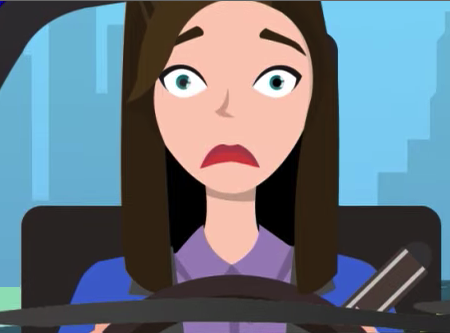It may be very surprising to know that over 60% of all drivers have experienced nerves when driving in one way or another. This is over 24 million out of the 40 million drivers on the UK roads, so much more common than you may think. If you are driving in a new area or in high traffic, this can be understandable, but if you are a nervous driver all the time, it can be debilitating and hold you back if you do not address the issues.
Roads and motorways
The type of road you are on can make a difference; the Smart Motorways are far more worrying than the motorways that have a hard shoulder for some, and the single-lane or rural roads are a surprisingly smaller percentage. The facts are clear: these single-lane or rural roads are the most unsafe, with far more incidents than the motorway networks, but the motorway’s speed causes the most anxiety.
UK road safety
Population-wise, the UK has the safest roads in the world, with counties such as Denmark and Sweden close behind. The Highway departments cover the UK Road network very well, making any incident quickly reported and dealt with. The electronic signs we see often have helped to bring down traffic accident rates by warning drivers in advance of any event. However, the most nervous drivers will still worry about driving even with technology.

Addressing driver issues
When you have driver anxiety, you can address the issues and move forward into driving independence, or you can remain in worry about every journey and eventually avoid certain roads or motorways and limit your freedom. You can rarely overcome these worries without more practice or help from specialist tutors who understand the anxiety that being a nervous driver impacts your daily life.
If you have passed your theory and practical driving test, chances are you can drive well. Still, if you do not continue to practice and drive new unknown routes, you will start to doubt your own abilities, and often once children come along, the fear of driving can become even more worrying. With all the will in the world, partners, friends, or relatives are not the right people to turn to as they are too emotionally involved with you and can panic as much as yourself if you get into difficulties. Just a few confidence driving sessions with a skilled tutor can improve your driving and release many of the fears that hold you back.
Reasons that many drivers become unconfident
There is no typical reason drivers start to doubt their driving, it can come from nowhere and with no explanation, and no two nervous drivers are the same. For some, it can start from something relatively minor, such as being embarrassed when trying to parallel park on the street, witnessing an accident, or being involved in a near-miss situation. You do not have to be involved in a bad accident to have your nerves shredded behind the wheel. Many drivers may feel okay in the local area, shops, and schools, for example, but to attempt a motorway journey or the like will make you panic before you start, so you avoid them in the long run.
Help available for confidence on the road
Taking confidence driver training can be hugely liberating. Many say it’s like you have been handed a key to the rest of the country’s roads with all the information and skills you will learn from an advanced driving tutor. If nothing else, it is essential to practice new skills and get in the car whenever you can to keep up your confidence. Our advanced driver tutors have helped many drivers come back to the road after not driving for many years, this is very common in large urban areas where the public transport links are easy, and for some, they have had to take over the responsibility of driving if a partner becomes ill.
There should be no shame in looking for help with your driving worries; once you have overcome them, it will take away all the panic you currently feel when considering a journey in the car. It is crucial to overcome your worries in many ways, especially if you have children. If they witness your driving nerves, it can make them worried about driving in the future themselves. However, most importantly, driver training for your own self-confidence and the safety of other road users is paramount.

